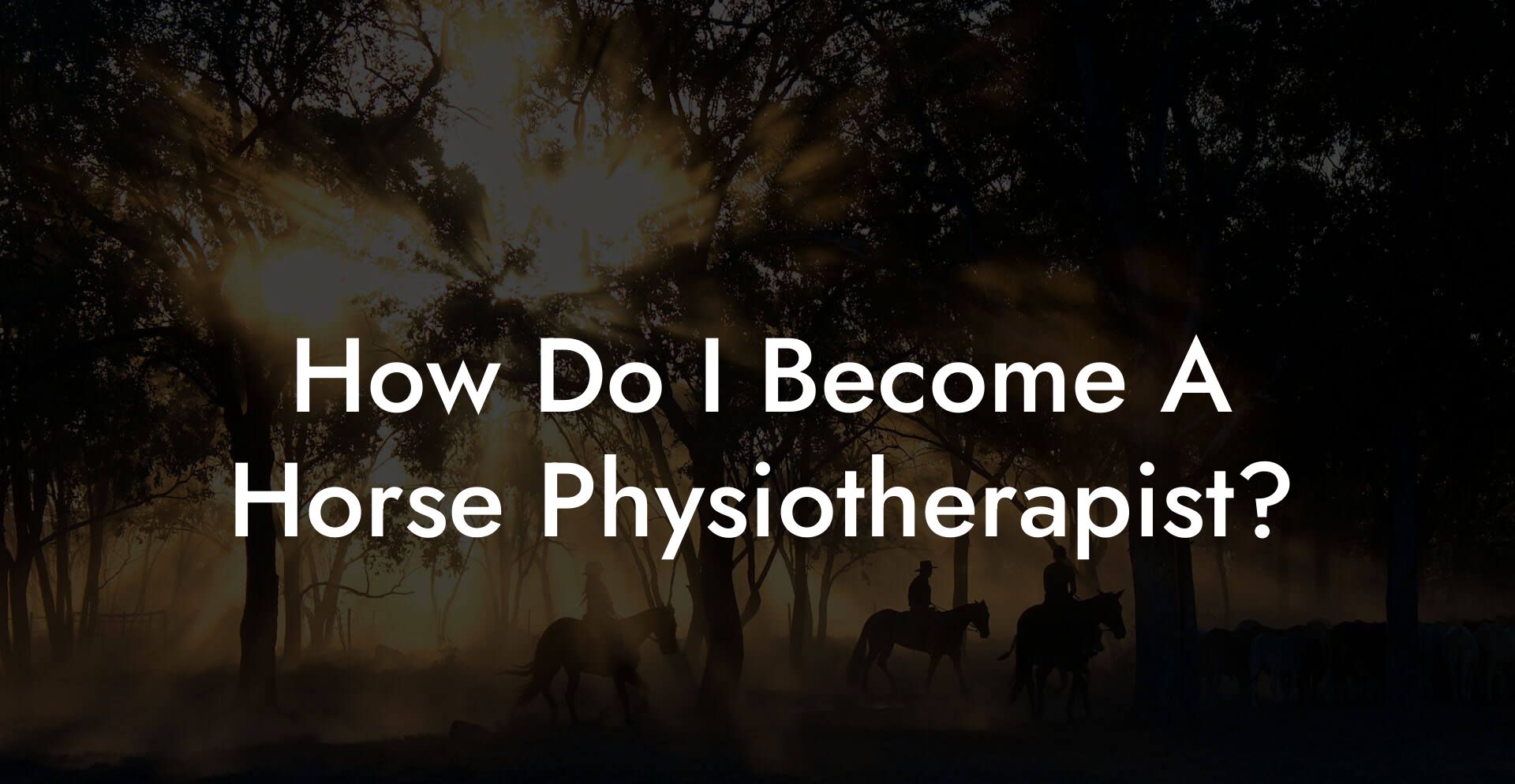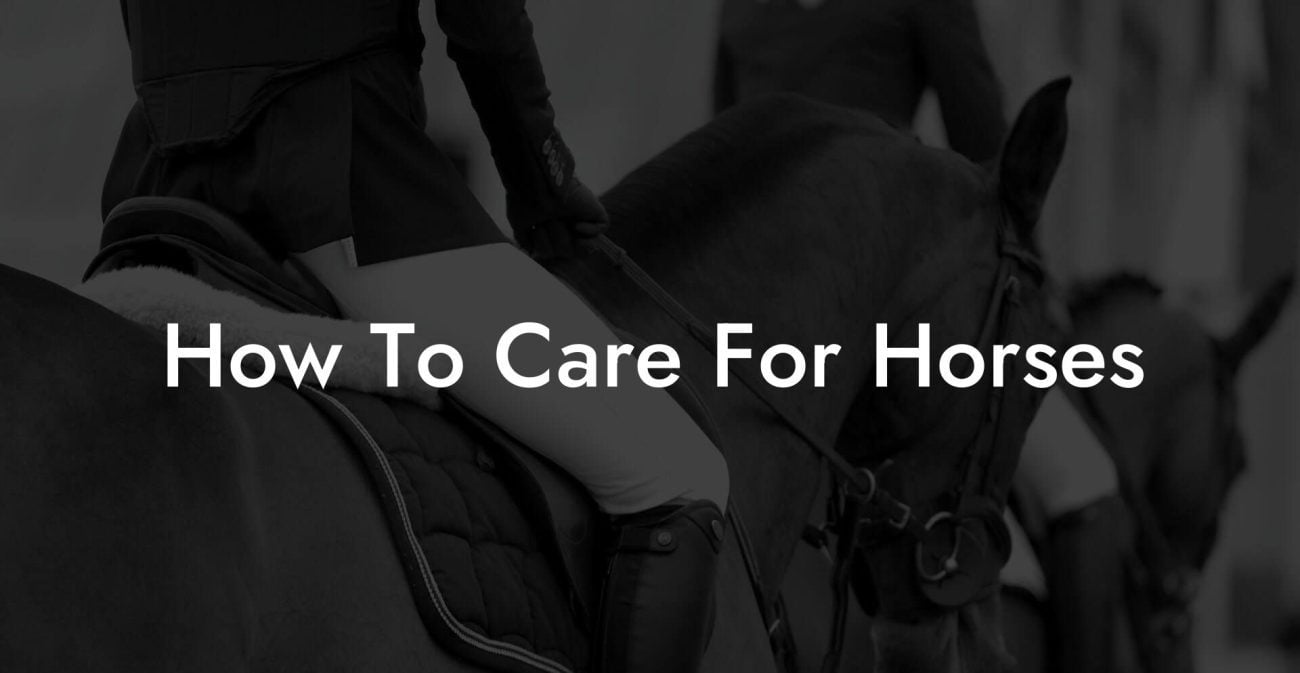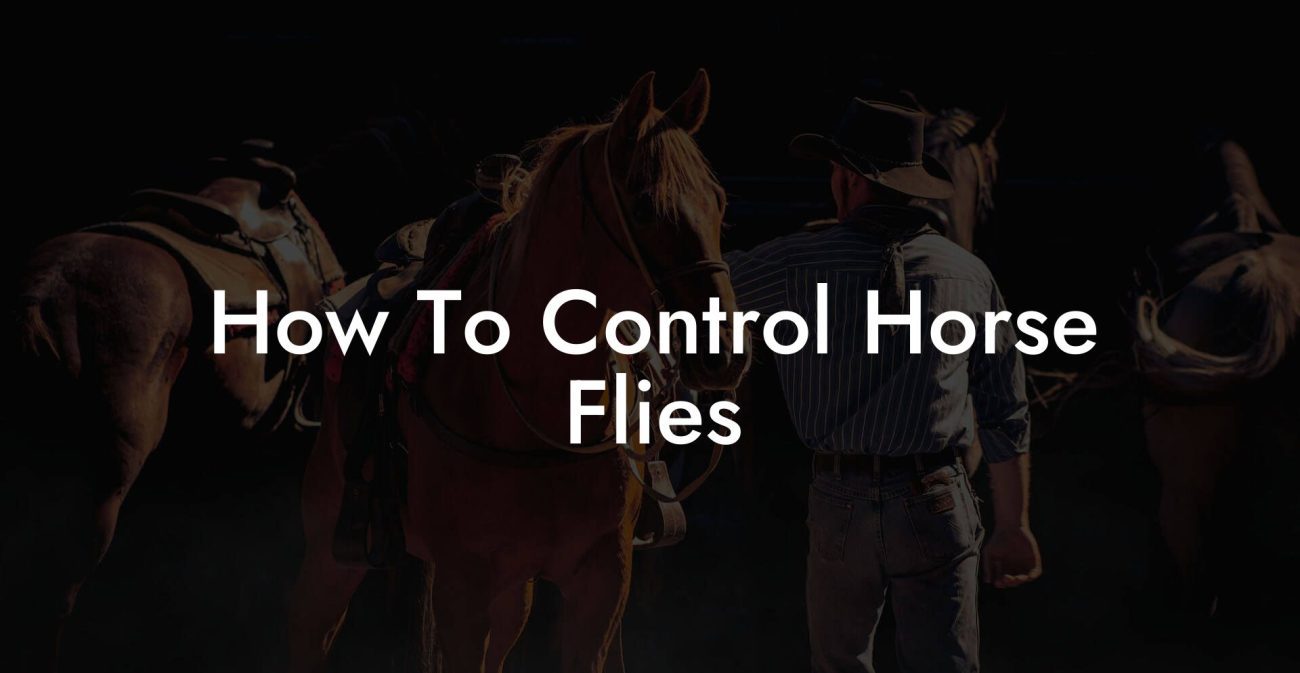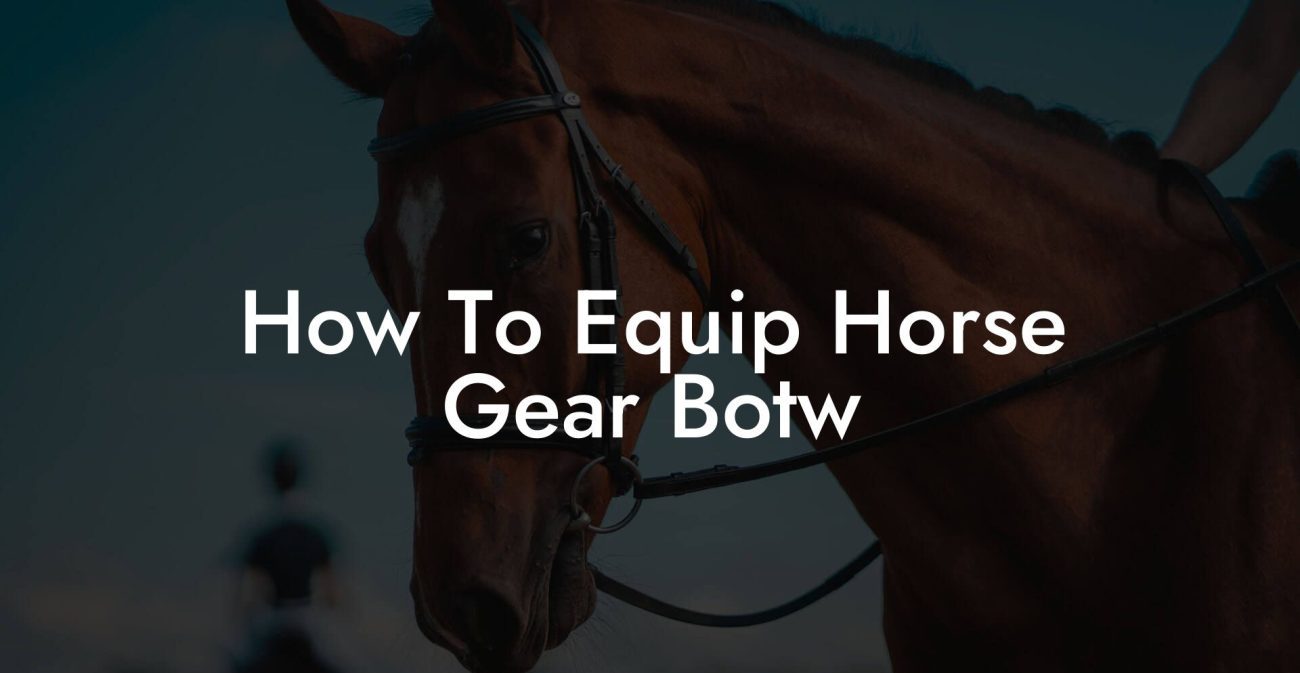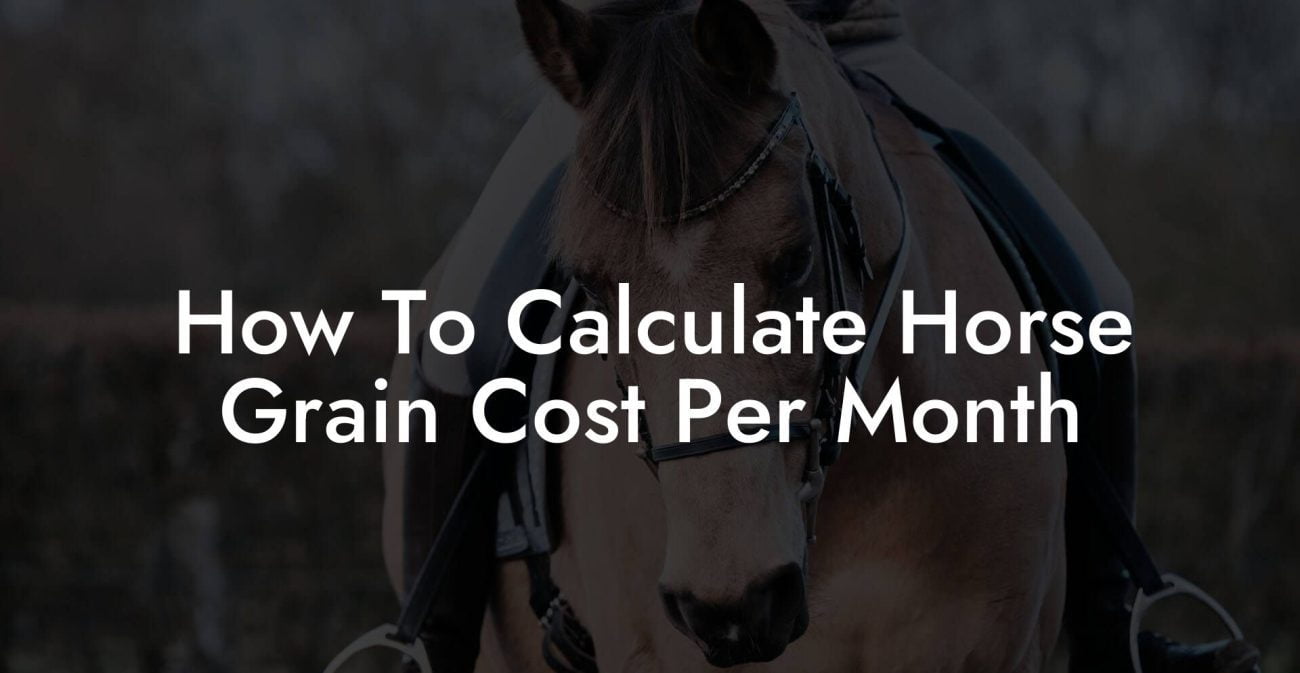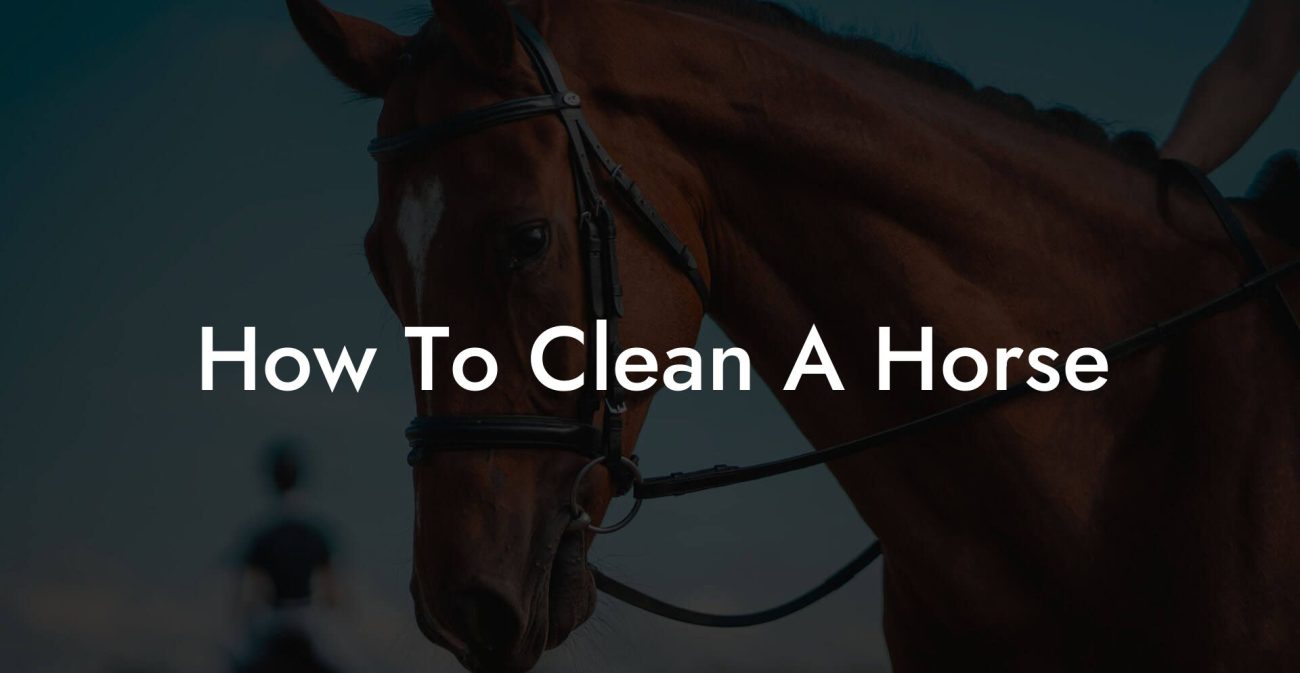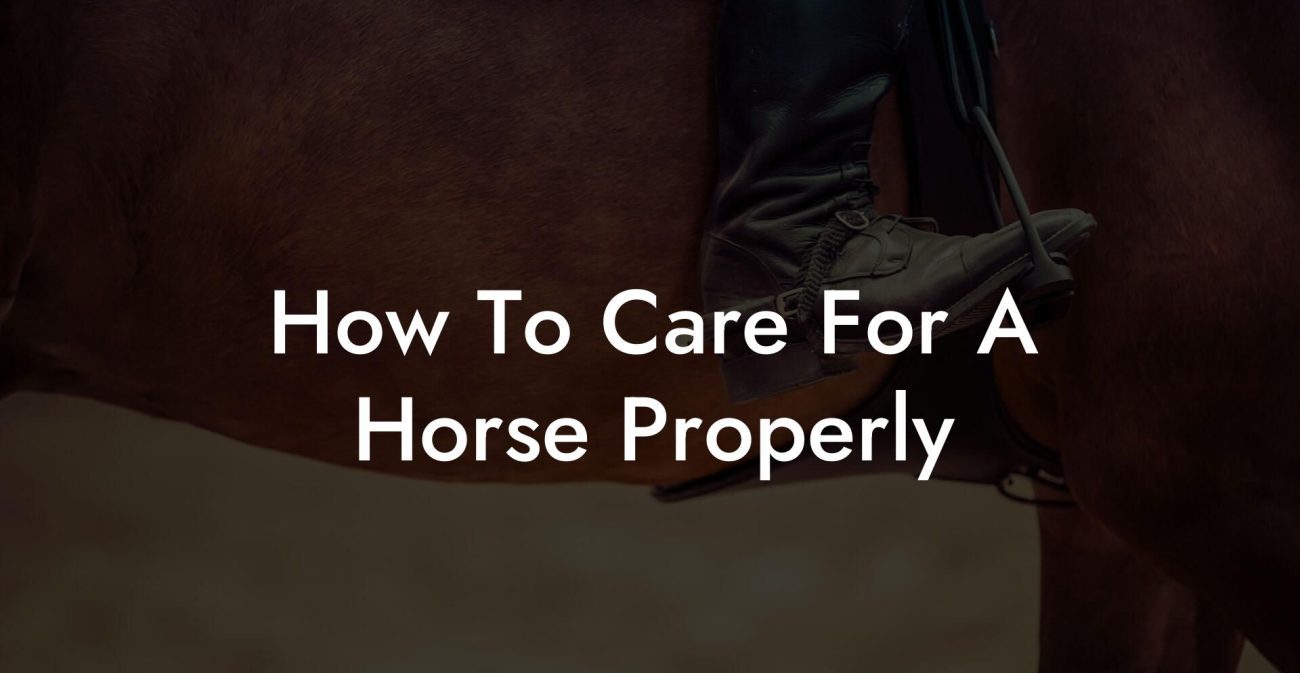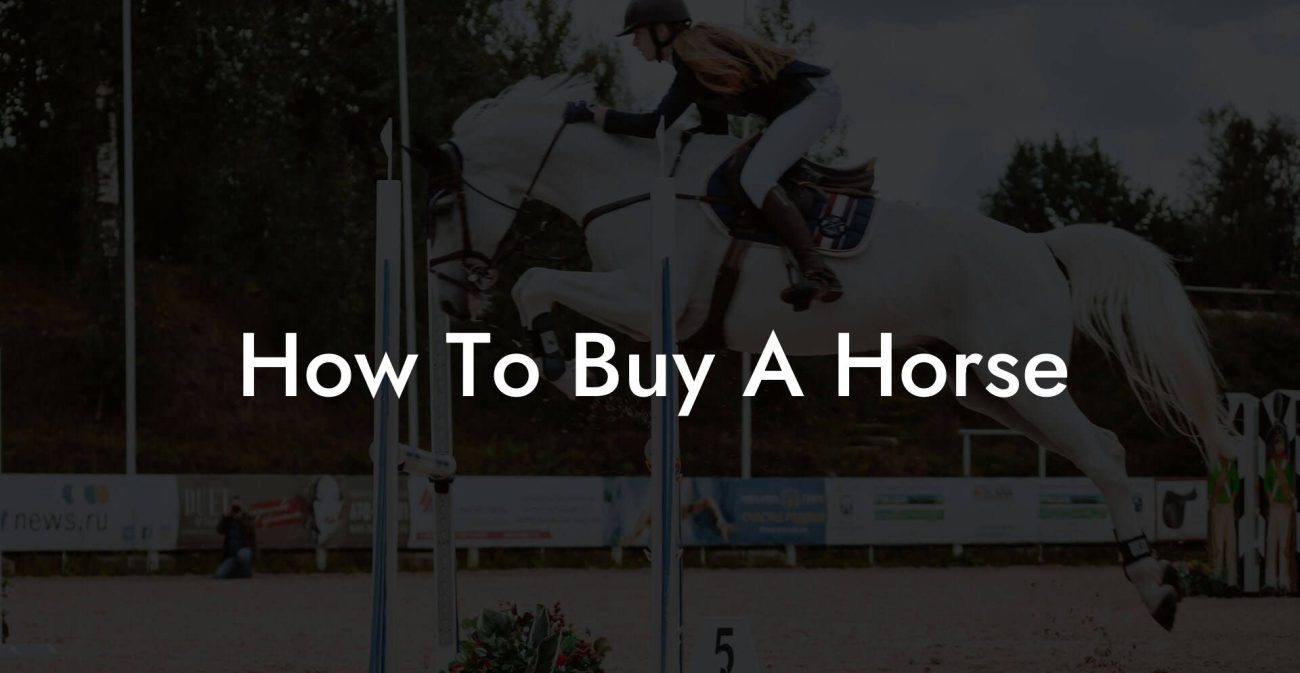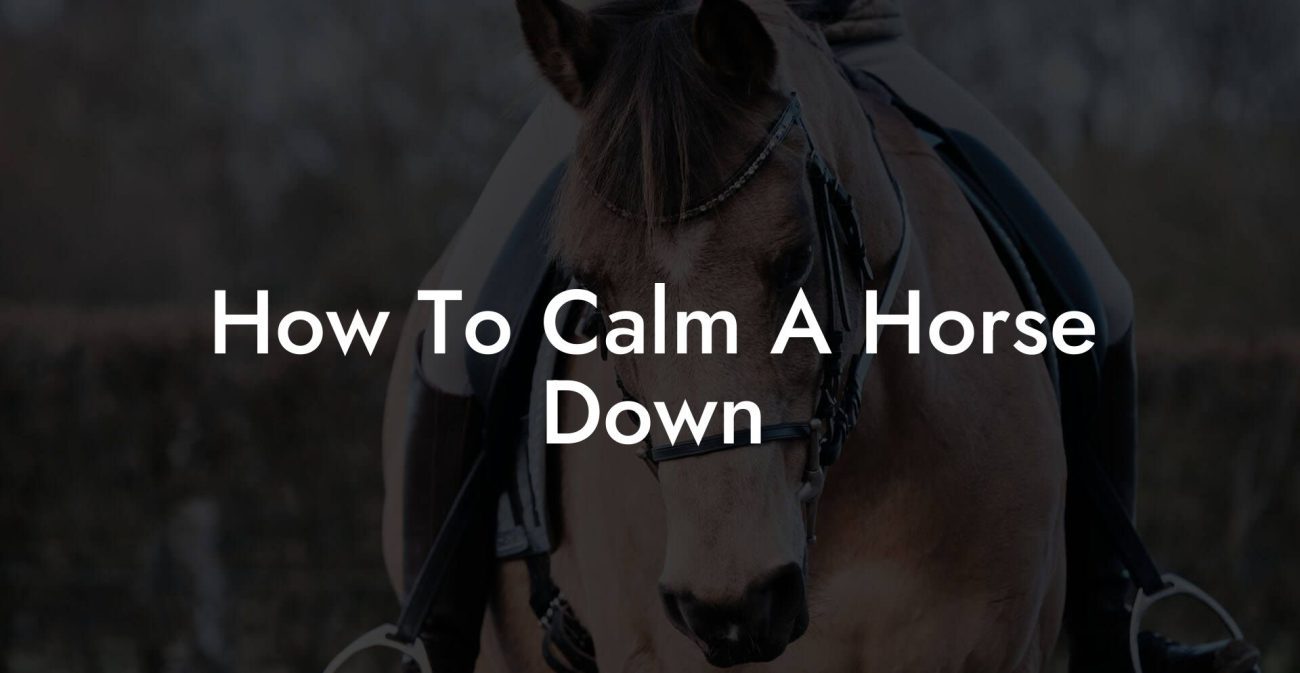Ever thought about blending your passion for horses with a knack for healing? Picture a career where every day, you can saddle up to help magnificent equine athletes recover from injuries and perform at their peak. Becoming a horse physiotherapist isn’t just about knowing animal anatomy, it’s about merging science with empathy, precision with creativity, and technology with tradition. Whether you're a millennial drawn to innovative healing modalities or a Gen-Z adventurer who loves all things equine, this guide will navigate you through every step of the journey, from academic pathways to practical experiences, and even the business savvy needed to launch your own practice.
Quick Links to Useful Sections
- Embarking on the Trail to Equine Physiotherapy Mastery
- Understanding the Role of a Horse Physiotherapist
- Essential Skills and Passion for Equine Care
- Educational Path: Cantering Through Coursework and Certifications
- Specialized Courses and Hands-On Training
- Hands-On Experience: Real-World Equine Therapy in Action
- Building Your Horse Physiotherapy Toolkit: Techniques & Modalities
- Networking, Resources, and Community Support: Gallop Into the Equine World
- The Business Side: Launching Your Equine Physio Practice
- Step-by-Step Guide: How Do I Become A Horse Physiotherapist?
- Step 1: Self-Assessment and Passion Check
- Step 2: Obtain a Relevant Education
- Step 3: Gain Practical Experience
- Step 4: Pursue Specialized Certification
- Step 5: Build Your Toolkit
- Step 6: Network and Engage with the Community
- Step 7: Launch Your Practice or Join a Team
- Career Opportunities and Future Trends in Equine Physiotherapy
- Horse Physiotherapy FAQs: Your Questions Answered
- Your Journey in Equine Physiotherapy: Riding to Success
Embarking on the Trail to Equine Physiotherapy Mastery
Imagine standing in a vast field, the sun dipping low, and a mare trots confidently beside you after a transformative session of therapeutic care. That’s the reality for horse physiotherapists, a unique blend of art and science that plays a critical role in the recovery and performance enhancement of our equine friends. In this comprehensive resource, we’ll explore what it takes to carve out a successful career in equine physiotherapy. From foundational knowledge in equine anatomy to cutting-edge treatment techniques like equine sports massage and rehabilitation protocols, you’re about to embark on a ride that promises as much fulfillment as it does challenge.
This field is not for the faint of heart. It demands dedication, continual learning, and a passion for equine care that goes beyond the basics. But if you’ve ever felt that elusive spark, an insatiable desire to combine hands-on animal care with advanced healing techniques, then buckle up. We’re about to dive into every detail, offering insights that range from the clinical to the creative, ensuring you’re well-armed to answer the ultimate question: How do I become a horse physiotherapist?
Understanding the Role of a Horse Physiotherapist
Horse physiotherapists, also known as equine physiotherapists or equine rehabilitation therapists, are professionals dedicated to ensuring the health and performance of horses. They focus on assessing, diagnosing, and treating musculoskeletal issues in horses, using a variety of techniques to relieve pain, enhance mobility, and prevent further injury.
In an era when sports medicine is booming in human athletics, the equine world has seen a similar revolution. Physiotherapists for horses work hand-in-hoof with veterinarians, trainers, and farriers to ensure that each horse can move freely and perform optimally, whether on the racetrack, in the arena, or during leisurely rides.
But being a horse physiotherapist isn’t just about dealing with injuries. It’s also about preventative care, designing customized rehabilitation programs, offering equine sports massage, and using innovative techniques like manual therapy and dynamic stretching. Your role is pivotal in every phase of a horse’s life, from young, active athletes in training to older horses needing specialized care to maintain their quality of life.
Essential Skills and Passion for Equine Care
If you’re serious about transitioning into horse physiotherapy, there are essential skills and personal qualities you’ll need to cultivate. First and foremost, a deep love for horses is non-negotiable. You need to appreciate their complexities, from the thrill of their power to the subtleties of their body language.
Technically, a solid understanding of equine anatomy, kinesiology, and biomechanics is crucial. This knowledge allows you to pinpoint the sources of pain or injury and design effective treatment plans. Beyond the textbooks, effective communication skills are paramount. You’ll need to translate complex physiological concepts into plain language for horse owners, trainers, and fellow team members.
But perhaps the most underrated skill in your toolkit will be empathy. Horses may not speak, but they sure communicate through movement and behavior. A keen eye for the nuances of equine behavior, combined with the willingness to listen (figuratively and sometimes literally), sets a great horse physiotherapist apart from the rest.
Being adaptable and innovative also goes a long way. With new technologies, mobile health apps, and biofeedback devices becoming popular in equine therapy, staying updated with the latest trends can give you a competitive edge. In a nutshell, blend your technical skills with an empathetic heart, and you’re well on your way to mastering the art and science of equine physiotherapy.
Educational Path: Cantering Through Coursework and Certifications
The road to becoming a horse physiotherapist begins with a solid educational foundation. While specific requirements may differ by region, most aspiring equine physiotherapists benefit from a blend of formal education and specialized training.
Many start with a bachelor’s degree in fields such as veterinary science, animal science, sports science, or physiotherapy. This academic background provides a robust understanding of biological systems, muscle mechanics, and the scientific principles behind physical rehabilitation.
Specialized Courses and Hands-On Training
After or during your degree, look for courses that are specific to equine anatomy, rehabilitation, and sports therapy. Several institutions now offer specialized programs or certifications in equine physiotherapy, a growing field that bridges veterinary medicine with advanced physical therapy.
Practical experience is vital. Workshops and internships with equine clinics or specialized equine hospitals will not only sharpen your skills but also help you build a network within the industry. Focus on learning various treatment modalities, such as:
- Equine Sports Massage: Techniques to enhance muscle recovery and prevent injuries.
- Manual Therapy: Hands-on manipulations to relieve pain and restore movement.
- Hydrotherapy: Using water-based exercises to reduce stress on joints and muscles.
- Acupuncture: Integrative approaches that are increasingly popular in holistic equine care.
Many certification programs also encourage a mentoring approach, pairing you with experienced practitioners who provide invaluable insights into real-world challenges and solutions. Trust us, learning from someone who's been around the block (or paddock) can accelerate your understanding of the complexities of equine physiotherapy.
Once you’ve completed formal coursework and hands-on internships, you may also consider further certifications in related fields like equine sports therapy, myofascial release, and equine kinetic analysis. These additional credentials not only boost your expertise but also serve as a signal of your commitment and proficiency to potential employers and clients.
Hands-On Experience: Real-World Equine Therapy in Action
Education lays the groundwork, but nothing beats real-world experience. Aspiring horse physiotherapists must seize opportunities to get their hands dirty, metaphorically speaking, with live cases under the watchful eye of seasoned professionals.
Internships, apprenticeships, and volunteering at equine rehabilitation centers are golden opportunities to hone your skills. You might start with observing and gradually take on more responsibilities, from basic assessments to implementing treatment plans under supervision. These experiences are critical in building confidence and technical expertise.
Specialized clinics, working closely with experienced veterinarians and equine therapists, will expose you to a variety of cases, each horse presenting unique challenges that require tailored interventions. From treating tendon injuries common in racehorses to managing arthritis in aged performance horses, the practical lessons are endless. Each session becomes a masterclass in patience, precision, and the subtleties of non-verbal communication with your equine patients.
And let’s not forget the adrenaline rush of seeing a horse recover from an injury you’ve been part of, watching them canter freely after weeks of careful rehabilitation is a reward like no other. In these hands-on environments, you’ll also gain the confidence to use advanced diagnostic tools, such as ultrasound imaging and biofeedback devices, to monitor a horse’s progress and fine-tune their treatment plans.
So, embrace every opportunity to practice, ask questions, and learn from each case. With every step, you’re not just gaining experience; you’re building a legacy in the field of equine physiotherapy.
Building Your Horse Physiotherapy Toolkit: Techniques & Modalities
What exactly goes into the toolbox of a proficient horse physiotherapist? It’s not just about having a wealth of theoretical knowledge; it’s about mastering an array of techniques that can be adapted to each unique case.
Your toolkit starts with a deep understanding of equine biomechanics and manual techniques. Here are some of the key modalities you will master:
- Equine Sports Massage: This is akin to a spa day for a horse’s muscles. Techniques include effleurage, petrissage, and deep tissue manipulation to relieve stiffness, boost circulation, and speed up recovery.
- Manual Therapy and Myofascial Release: Applying targeted pressure to relieve muscle knots and tension while enhancing flexibility and restoring fluid movement.
- Hydrotherapy: Using water resistance to aid muscle relaxation and joint mobility. Hydrotherapy pools or underwater treadmills are increasingly popular in equine sports medicine.
- Stretching and Exercise Regimens: Customized routines that promote strength, flexibility, and endurance. These are particularly essential in preventing recurrent injuries.
- Electrotherapy: Utilizing modalities like tens (transcutaneous electrical nerve stimulation) to modulate pain signals and support muscle function.
- Acupuncture and Integrative Therapies: Blending modern science with traditional practices, acupuncture becomes a tool to relieve pain and rebalance energy pathways.
With each technique you master, your confidence grows. However, it’s also important to remain curious about emerging technologies. For example, digital motion analysis and biofeedback devices are revolutionizing the way physiotherapists assess a horse’s movement, offering real-time data that can refine treatment precision.
Don’t be afraid to experiment and integrate techniques from various disciplines. Just as a chef blends spices to create a signature dish, you’ll create your own style of treatment by combining traditional methods with innovative approaches. The ultimate aim is to craft a holistic, personalized program for every horse that crosses your path.
Networking, Resources, and Community Support: Gallop Into the Equine World
In any specialized field, building a strong network can be as valuable as any certification. The community of equine health professionals is a vibrant, supportive group united by their shared passion for equine well-being.
Attend workshops, seminars, and equine sports medicine conferences wherever you can. Not only will these events keep you updated on the latest developments in horse physiotherapy, but they also open doors to mentorship opportunities and potential collaborations. Consider joining professional organizations and online communities that focus on equine rehabilitation and physiotherapy. Social media platforms are also great, follow leading experts, engage in discussions, and share insights.
In addition to networking, maintaining a curated list of resources is essential. Subscribe to industry journals, access online courses, and dive into specialized forums. This continuous stream of information fuels your growth as a practitioner and keeps your skills razor-sharp.
Whether you’re sharing a success story on Instagram or exchanging ideas in a webinar, every interaction broadens your perspective and deepens your connection to the field. Remember, the world of horse physiotherapy is as dynamic as the horses themselves, always evolving, always inspiring, and always ready for someone as enthusiastic as you.
The Business Side: Launching Your Equine Physio Practice
So, you’ve honed your skills, built your toolkit, and now you’re itching to start your own venture. The business side of horse physiotherapy is a whole new arena that requires its own set of strategies. Whether you’re planning to join an established equine rehabilitation center or set up your own practice, understanding the basics of business management is crucial.
Begin by crafting a solid business plan. Consider factors such as your target market, ranging from racehorse trainers to owners of leisure riding horses, and the types of services you’ll offer. Will you specialize in rehabilitation and injury prevention for high-performance athletes, or will you cater to a broader equine community seeking overall well-being?
Funding, location, and branding are key pillars here. Many successful practitioners start small, working on a mobile basis or partnering with local veterinary clinics until they can establish their own dedicated space. In today’s digital age, a robust online presence is indispensable. Think sleek, user-friendly websites, active social media profiles, and engaging content that not only informs but also entertains.
And remember, the power of word-of-mouth in the equine community is immense. Happy clients become your best marketers. So, invest time in delivering exceptional service, collecting testimonials, and continuously adapting to meet client needs. Your practice isn’t just a business; it’s a testament to your dedication and passion for equine health.
Step-by-Step Guide: How Do I Become A Horse Physiotherapist?
Breaking down the pathway into clear, actionable steps can demystify the process and set you on the track to success. Here’s a practical roadmap:
Step 1: Self-Assessment and Passion Check
Start by reflecting on your passion for horses and your interest in the science of healing. Are you ready to invest the time and energy required? A clear passion for equine welfare is the foundation upon which all other skills are built.
Step 2: Obtain a Relevant Education
Enroll in a bachelor’s degree program in veterinary science, animal science, sports science, or physiotherapy. Supplement your studies with specialized coursework or certifications in equine therapy.
Step 3: Gain Practical Experience
Seek internships, apprenticeships, or volunteer opportunities at equine rehabilitation centers and clinics. Embrace every hands-on experience to develop your technical and diagnostic skills.
Step 4: Pursue Specialized Certification
After your degree, enroll in certification programs that focus on equine physiotherapy, manual therapy, or equine sports massage. These credentials will build your credibility within the industry.
Step 5: Build Your Toolkit
Continuously train in various techniques from manual therapy and holistic treatments to leveraging technology such as biofeedback and motion analysis. The broader your toolkit, the better you can serve your equine patients.
Step 6: Network and Engage with the Community
Attend industry conferences, join professional organizations, and engage on social media. Building a strong network will lead to mentorship opportunities, collaborations, and career advancements.
Step 7: Launch Your Practice or Join a Team
Decide whether you’re ready to launch your own practice or if you prefer to join an established clinic. Either way, focus on delivering exceptional care, building a strong reputation, and continuously learning.
By following these steps, not only do you pave the way for a rewarding career, but you also ensure that every horse you work with receives the highest standard of care. This roadmap is your starting gate, setting you firmly on the path to becoming a proficient, compassionate horse physiotherapist.
Career Opportunities and Future Trends in Equine Physiotherapy
The field of equine physiotherapy is not static, it’s evolving at a fast pace. With advances in rehabilitation technologies, a deeper understanding of equine biomechanics, and a growing market for sports medicine in the equine world, career opportunities are expanding.
Today, you might find positions in established equine clinics, veterinary hospitals, sports training centers, or even as a consultant for racing teams. The trend is moving towards a more integrative approach where physiotherapists work closely with veterinarians and trainers to create holistic treatment plans.
Looking ahead, we can expect to see an increased use of telemedicine and mobile apps that allow you to monitor a horse's progress remotely. Wearable tech is making waves in equine health monitoring, providing real-time data that can help tailor rehabilitation programs. Furthermore, as awareness about the benefits of preventative care grows, equine physiotherapists will increasingly be seen as essential members of any equine care team.
For those with an entrepreneurial spirit, starting your own practice focused on equine rehabilitation and performance enhancement offers a fertile arena for innovation. With the right blend of clinical expertise, business acumen, and marketing savvy, your career can achieve new heights while making a true difference in the lives of horses.
Horse Physiotherapy FAQs: Your Questions Answered
Here are some frequently asked questions that address common concerns and curiosities about becoming a horse physiotherapist:
1. What is equine physiotherapy?
Equine physiotherapy is the practice of assessing, diagnosing, and treating musculoskeletal issues in horses through manual therapies, exercise routines, and rehabilitative techniques, all aimed at improving movement, reducing pain, and preventing future injuries.
2. What are the educational requirements to become a horse physiotherapist?
While requirements vary, a bachelor’s degree in veterinary science, animal science, sports science, or physiotherapy is common. Additionally, specialized certifications and hands-on training in equine therapy are highly recommended.
3. How important is hands-on experience in this field?
Hands-on experience is crucial. Working directly with horses in internships or apprenticeships allows you to apply theoretical knowledge, build practical skills, and learn from experienced professionals.
4. Can I specialize further within equine physiotherapy?
Absolutely. Many professionals specialize in areas like equine sports massage, manual therapy, hydrotherapy, or integrative rehabilitation methods, further enhancing their expertise and appeal in niche markets.
5. Do horse physiotherapists work independently?
Many choose to work for established clinics or veterinary hospitals, while others pursue an entrepreneurial path, launching their own practices. Both paths require a blend of clinical expertise and business acumen.
6. What future trends should I watch for in equine physiotherapy?
Keep an eye on advancements in digital monitoring, wearable tech, telemedicine, and integrative approaches that blend traditional manual therapies with modern technology to enhance diagnostic and treatment capabilities.
With industry growth, there’s never been a better time to dive into this field, where passion, innovation, and a commitment to welfare come together.
Your Journey in Equine Physiotherapy: Riding to Success
Embarking on the journey to become a horse physiotherapist is much like teaching a wild stallion to canter gracefully, it takes time, dedication, and an unyielding passion for the craft. Every session, every certification, and every moment spent in the stables or clinics contributes to carving out your niche in a field that is as challenging as it is rewarding.
Picture yourself as part mentor, part innovator, a professional whose work not only alleviates pain and restores mobility but also fosters a deep bond between humans and horses. Your expertise will empower trainers, veterinarians, and horse enthusiasts alike, building a legacy of care and excellence that resonates far beyond the barn.
With emerging trends in technology and a growing awareness of the importance of holistic equine care, your future in horse physiotherapy is not just a career, it’s a movement. Embrace opportunities for continuous learning, hone your skills relentlessly, and craft treatment plans that blend traditional wisdom with modern science.
Every challenge you overcome, every horse you help recover, and every client you inspire stands as a testament to the harmonious dance between passion and professionalism. Whether you’re administering targeted therapies on a misty morning or championing the adoption of new digital tools in advanced equine rehab, remember that the path you’ve chosen is one of true impact and adventure.
So, if you’re ready to infuse your career with energy, innovation, and a commitment to the well-being of horses everywhere, this is your starting block. Embrace the path less trodden, celebrate every milestone, and never forget, the art of healing is a journey, and your ride has only just begun.
With passion in your heart and the reins in your hand, forge ahead into the exciting world of equine physiotherapy. The stage is set, the field is vast, and your potential to make a positive impact is limitless. Here’s to a future where every horse regains its strength, every equine athlete is supported by advanced, compassionate care, and your journey becomes an inspiring testament to the harmony between science, art, and the enduring bond between humans and horses.

